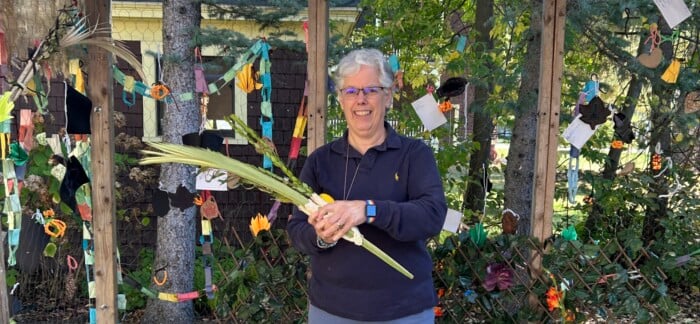Essay: BIPOC entrepreneurship grows in New Hampshire
 New Hampshire, renowned for its picturesque landscapes and tight-knit communities, is not often the first place that comes to mind when discussing the landscape of diverse entrepreneurship. However, a closer look at the data provided by the New Hampshire Fiscal Policy Institute reveals a nuanced and evolving narrative about business owners of color in the state.
New Hampshire, renowned for its picturesque landscapes and tight-knit communities, is not often the first place that comes to mind when discussing the landscape of diverse entrepreneurship. However, a closer look at the data provided by the New Hampshire Fiscal Policy Institute reveals a nuanced and evolving narrative about business owners of color in the state.
While challenges persist, a burgeoning community of Black, Indigenous, people of color (BIPOC) entrepreneurs is making its mark, contributing to the economic fabric of New Hampshire in unique and impactful ways.
Understanding the data
A Census Bureau’s 2021 survey classifying a business as minority-owned when such an individual owns at least 51% of a business provides insights into the diversity of business ownership within the state.
However, it’s essential to acknowledge that a significant portion of businesses — 51.2% of employees and 54.4% of payroll — remains unclassifiable. This is either due to a lack of information (many are sole proprietors who do not consider themselves businesses), or because these businesses are foreign-owned entities. Despite this limitation, the data sheds light on a significant portion of the state’s economic activity.
BIPOC-owned businesses:
a growing force
Among classifiable businesses, those owned by individuals identifying as “non-white and non-Hispanic” reported approximately 15,700 employees and $864 million in payroll across slightly more than 1,700 businesses. This underscores the substantial economic impact of BIPOC-owned enterprises in the state. These businesses, while diverse in nature, collectively contribute to the vitality and growth of New Hampshire’s economy.
 Even if not tracked accurately, minority-owned businesses are becoming more visible. Many of them are now part of the newly formed Business Alliance for People of Color (BAPOC) NH designed to advocate for the needs of its members. Even more are visible through the minority-owned business list on the businesses page of the Manchester NAACP’s website.
Even if not tracked accurately, minority-owned businesses are becoming more visible. Many of them are now part of the newly formed Business Alliance for People of Color (BAPOC) NH designed to advocate for the needs of its members. Even more are visible through the minority-owned business list on the businesses page of the Manchester NAACP’s website.
The unquantifiable impact
Beyond the numbers lies the immeasurable impact of BIPOC entrepreneurship on the cultural and social fabric of New Hampshire. These businesses contribute not only to the economic bottom line but also foster a rich tapestry of diverse perspectives, ideas and experiences.
BIPOC entrepreneurs often bring unique insights and innovative approaches to the marketplace. Their businesses become hubs of cultural exchange, offering products and services that reflect the diversity of their communities.
Take, for example, Don Quijote Restaurant in Manchester. The restaurant is a second home to many people who feel an affinity to the Latin American food and culture. This kind of cultural enrichment not only enhances the quality of life for residents but also attracts a broader range of consumers, investors and tourists — our largest revenue sector — to the state.
Types of BIPOC businesses in New Hampshire
BIPOC entrepreneurs in New Hampshire have made significant strides across various sectors. From culinary ventures that celebrate cultural flavors to technology-based startups and community-focused enterprises, the diversity of businesses reflects the multifaceted talents and skills within the BIPOC community.
- Culinary ventures include restaurants, cafes and catering services that offer a rich array of international cuisines. Food trucks and pop-up events showcasing unique and culturally diverse flavors.
- Retail and fashion include boutiques and stores specializing in traditional clothing, handmade crafts and imported goods. Online platforms that showcase and sell unique fashion items inspired by cultural heritage.
- Technology and innovation include tech startups founded by BIPOC entrepreneurs, contributing to the state’s growing technology sector.
- Consulting firms specialize in IT services, software development and digital marketing.
- Social impact enterprises include nonprofit organizations addressing community needs, focusing on areas such as education, health care and social justice. Initiatives promoting sustainability, environmental conservation and community well-being.
To nurture and amplify the positive trends seen in BIPOC entrepreneurship, New Hampshire should consider targeted initiatives and support mechanisms. Based on research by the Community-Driven Economic Empowerment Program, a program of the partnership between the Manchester NAACP and the NH Community Loan Fund with participation from the NH Small Business Development Center and the Center for Women & Enterprise, this support should include:
- Access to capital: Establishing programs that facilitate easier access to capital for BIPOC entrepreneurs can empower them to scale their businesses and contribute more significantly to the state’s economy to combat the limited access to funding sources, such as bank loans, due to systemic barriers and historical disparities.
- Networking opportunities: Creating platforms for networking and mentorship can connect BIPOC entrepreneurs with experienced business leaders, fostering a supportive community that shares insights and best practices to build valuable relationships reducing feelings of isolation and exclusion.
- Education and training: Investing in educational programs and training initiatives can equip youth and BIPOC entrepreneurs with the skills needed to navigate the business landscape successfully to improve operations and make their enterprises more known.
- Policy advocacy: Advocating for policies that promote diversity and inclusion within the business ecosystem to overcome stereotypes and biases associated with BIPOC entrepreneurs in certain industries and combat discrimination and bias, whether explicit or subtle, which can impact business interactions and opportunities.
New Hampshire is witnessing a transformative shift in its entrepreneurial landscape, with BIPOC-owned businesses playing a pivotal role in shaping the state’s economic future. The vibrant tapestry of BIPOC entrepreneurship in New Hampshire is a testament to the resilience, creativity and determination of individuals contributing to the state’s economic and cultural richness.
While challenges persist, the data indicates a positive trajectory, underscoring the importance of fostering an environment that supports and uplifts diverse voices. As New Hampshire embraces the economic potential of BIPOC entrepreneurship, it has the opportunity to not only strengthen its economy but also enrich the cultural and social fabric that makes the state unique.
This article is featured in the spring 2024 issue of 603 Diversity.
603 Diversity’s mission is to educate readers of all backgrounds about the exciting accomplishments and cultural contributions of the state’s diverse communities, as well as the challenges faced and support needed by those communities to continue to grow and thrive in the Granite State.













